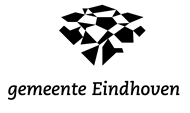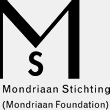Travel
Rushing to Mobile, we took the interstate. We are turning away from the great Mississippi river because our contacts take us elsewhere. Following recommendations and word of mouth, it seems Mobile is the place to go. Crossing the Louisiana bayous and seeing the thick sub-tropical vegetation was about as interesting as it got. There’s a monotony to the road’s functionality that makes drivers and passengers indifferent. Sameness is the dominant impression, even in a landscape as diverse as this.
Mobile, Alabama is a small city just over the border from Mississippi on the Gulf Coast. It’s old for the States, like Louisiana it was governed by various Europeans until 1813 when it joined the Union. We spend three hours here, meeting Clayton Colvin and seeing the space 301/Living Art Space in the city centre. The show Clayton had curated was substantial, politically charged. (see pictures here - the gloves have been made one a day since the beginning of the Iraq War - inclusive, nuanced and thoughtful drawings and text reacting to the news each day). It was against my naïve expectations to find such work in what I imagined to be a very “red†Republican state. Clayton said, very interestingly, that political critique was much less of a problem than sex and nudity – where the Christian and Family Values ideologies have more at stake. There was some good work from artists based in New Orleans and Atlanta in particular. What was striking about Mobile was the fact that the city government seemed involved in creating a creative hub in the old city. It is a combination of city and private money that is developing 301 and renovating a big new space for residencies and exhibitions.
Radio
On route to Birmingham, we listened to the low FM radio – American Family Network. It was predictably frightening. “Report proves that Islam is a violent religion†was the first item on the hourly news, followed by criticism of government funding for a liberally biased media and advertising from a documentary about “whether your child is born gayâ€. But a little further on, we hear the English Guardian newspaper editor being interviewed on National Public Radio, so it is too easy to caricature Alabama in obvious ways – with religion as much as with much else
Churches
Getting near to Birmingham, we went off the interstate highway and through small towns like Clanton, AL with its peach monument. Churches proliferate across the land. Every settlement, mostly string out in ribbon development along a road, has more churches than retail opportunities, each one declaring its affiliation from a changeable text board hailing passing cars. As the pattern repeats, it becomes clear that the church and the mall are the only interruptions to simple family homes – some elaborate, some trailers without wheels. To a European urban sensibility, the lack of public space or gatherings spaces for public interaction, is striking. It makes me realise something for the first time so clearly – that the churches represent a large part of the public space in a village or town. This is where people can gather and satisfy their need for companionship. This realisation changes things. Maybe the success of the church her (which I find so difficult to understand without resorting to amazement or disgust) is no longer down to some metaphysical cause of holy inspiration. Instead it relates to a social and political need to recognise the process of living together. The church is the collective, the soviet structure of the US community.
Marx is missing
These thoughts lead me to a very simple initial idea. It remains just a tentative thought at this stage. It is that, if Europe and the USA are growing culturally apart, having begun with precisely the same inheritance, then it has something to do with the 20th century history of socialism/communism.
Later, at the Civil Rights Institute in Birmingham, Alabama, we are confronted by the minister Dr. ML King arguing with other white ministers in print about the anti-segregation marches in the city in 1963-4. Two versions of the same faith, utterly opposed to what seems a self-evidently righteous cause. The dumb question for me is: how can the progressive side in this argument phrase and shape itself according to Christianity? Where is the secular socialist ideology that might have simply supported Martin Luther King because he was a liberation fighter and a class warrior?
For someone brought up with communism or social democracy, the missing element is obvious. It is only in understanding the church as in some ways filling this space and in realising that the success of the US Communist witch hunts and subsequent propaganda in the Cold War that things start to make sense. Marxism, even as a vaguely understood notion of the proletariat and ownership of capital, has been simply deleted and is/was not on offer to King or any of the Civil Rights people who might have sought it out. Instead, it is the church, a place that at least mouths the words of equality, that becomes the repository of the movement. Secular anti-segregationists seem to have been marginalised very early. Even Malcolm X issues calls in the name of religion.
Since 1989, when the two sides of the European divide can try to work out a common story, it grows more and more evident that the ideology of socialism is what links us together – even though our experiences were very different. It is generally socialism that gives the state a role in equalising society, in protecting the weakest, in constructing the idea of national and local community as inclusive. Socialism is also abusive of state power and strongly resisted at times, but it is ever present. Take this away, and add a state that in the south, openly uses/used ethnic discrimination against a large proportion of its citizens, and maybe it explains to European eyes, the significance of the Christian church in the heartland of the USA, and why it seems so unaccountable or simply foreign to those of us bred in Europe.







